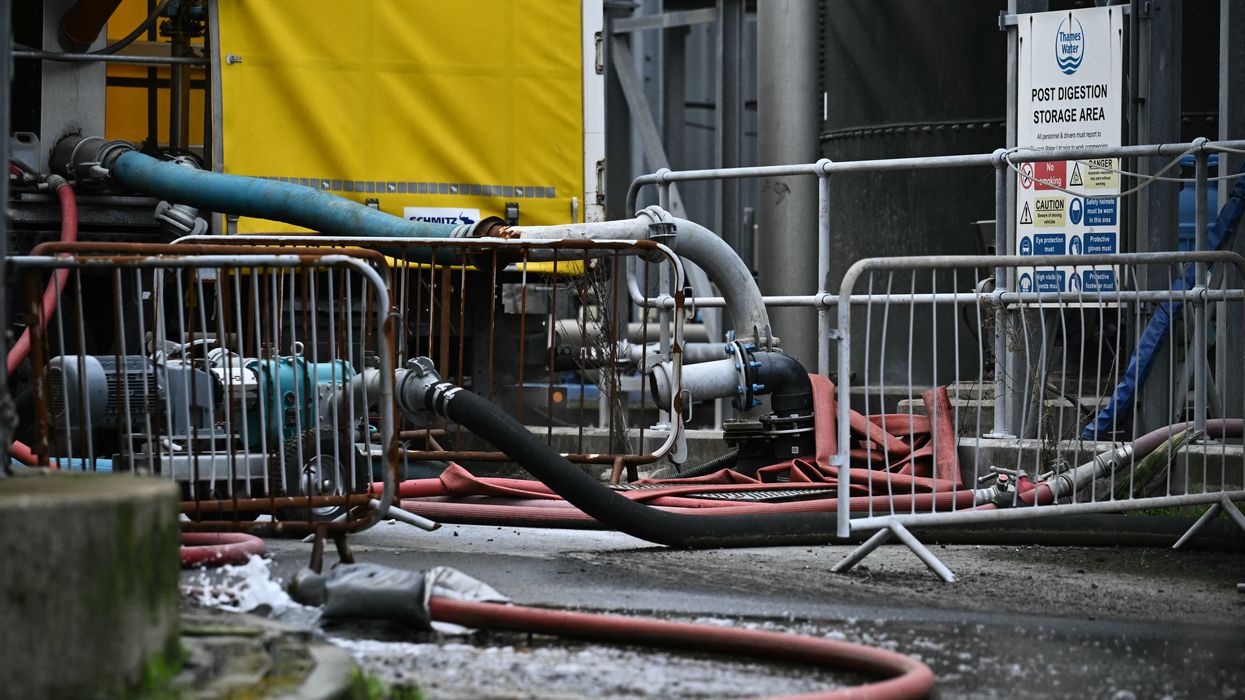Thames Water, the UK’s largest privatised water company, saw a 50% increase in raw sewage discharges into rivers across England in 2024, according to newly released data. The company, which is currently facing significant financial difficulties with a debt of £19bn, released raw sewage into rivers for nearly 300,000 hours over the past year, a substantial rise from the 196,414 hours recorded in 2023.
The alarming data was obtained through an environmental information request by Peter Hammond, a retired professor of computational biology from University College London, and shared with The Guardian. The figures highlight the growing environmental and infrastructural challenges facing Thames Water, which is teetering on the brink of collapse despite a recent £3bn bailout approved by the court of appeal.
Infrastructure under strain
Thames Water's ageing infrastructure is at the heart of the surge in raw sewage discharges. According to the company, the increase was largely due to the crumbling state of its sewage treatment works, combined sewer overflows, and pumping stations, all of which struggled to cope with the demands placed on them. Nearly 90% of the discharges in 2024 originated from sewage treatment works, many of which have been left to deteriorate due to decades of underinvestment.
Internal company documents reveal that Thames Water knowingly allowed its infrastructure to "sweat" without sufficient maintenance, leading to significant risks for both public safety and the environment. The company now faces criminal investigations by the Environment Agency (EA) and Ofwat, the water regulator, over allegations of illegal sewage dumping. Thames Water has acknowledged its failure to invest properly in its infrastructure but argues that fixing the problem will require substantial financial support.
To fund the necessary upgrades, Thames Water is appealing to the Competition and Markets Authority for permission to raise household water bills by 59% over the next five years. This request is far higher than the 35% increase approved by Ofwat, but the company insists that it is essential to pay for the repairs and upgrades needed to prevent further environmental damage.
Record-breaking discharges
The data from Thames Water provides a grim snapshot of the scale of the problem. At Marlborough sewage treatment works, raw sewage was discharged for 2,786 hours in 2024. Meanwhile, the Chesham sewage treatment works released sewage for 2,681 hours. In Buckinghamshire, the Amersham balancing tanks, which are supposed to store excess sewage after heavy rainfall, discharged raw effluent for 4,842 hours. The longest continuous discharge occurred at Amersham, where raw sewage flowed into the River Misbourne, a chalk stream, for an uninterrupted period of 154 days.
Environmental campaigners have expressed growing concern about the impact of these discharges on local ecosystems, particularly in sensitive areas like chalk streams, which are home to rare wildlife and are considered vital to the health of the UK’s rivers. Steve Reed, the environment secretary, has promised to clean up England’s rivers, setting a target for water companies to reduce the average number of spills per sewage overflow to 10 by 2050. However, Thames Water’s 2024 figures show an average of 45.2 spills per overflow, far exceeding this target.
Illegal spills under scrutiny
Hammond, who has been investigating water company sewage discharges for years, believes that many of the spills recorded in 2024 may have been illegal. His analysis suggests that raw sewage was often discharged on dry days when there was no rainfall to trigger an overflow event. For instance, Marlborough sewage treatment works discharged raw sewage for 26 days into the River Kennet, a chalk stream and site of special scientific interest, during dry weather. Under the terms of its permit, Thames Water is only allowed to release sewage during periods of heavy rainfall, raising questions about whether the company is complying with environmental regulations.
Hammond’s previous research, presented to MPs on the environmental audit committee in 2021, revealed that illegal raw sewage discharges by water companies were ten times greater than the Environment Agency had initially estimated. His findings have prompted a major criminal investigation into illegal spills, as well as a separate inquiry by Ofwat. Both investigations are ongoing.
Thames Water responds
In response to the data, Thames Water defended its handling of sewage discharges, stating that the figures were influenced by one of the wettest years on record. “Storm discharges are closely correlated with rainfall and groundwater conditions, and we therefore experienced an increase in the frequency and duration of storm discharge events during 2024,” the company said.
Thames Water also emphasised its commitment to improving its infrastructure, promising to deliver a “record amount of investment” over the next five years to address the issues with its sewage network. The company said it would continue to be transparent with the public, pointing out that it was the first water company to publish a real-time data map showing sewage discharges before this became a legal requirement.
While Thames Water works to repair its failing infrastructure, environmental campaigners and regulators will be watching closely to ensure that the company meets its promises and takes meaningful action to reduce sewage discharges and protect the UK’s rivers from further harm.





